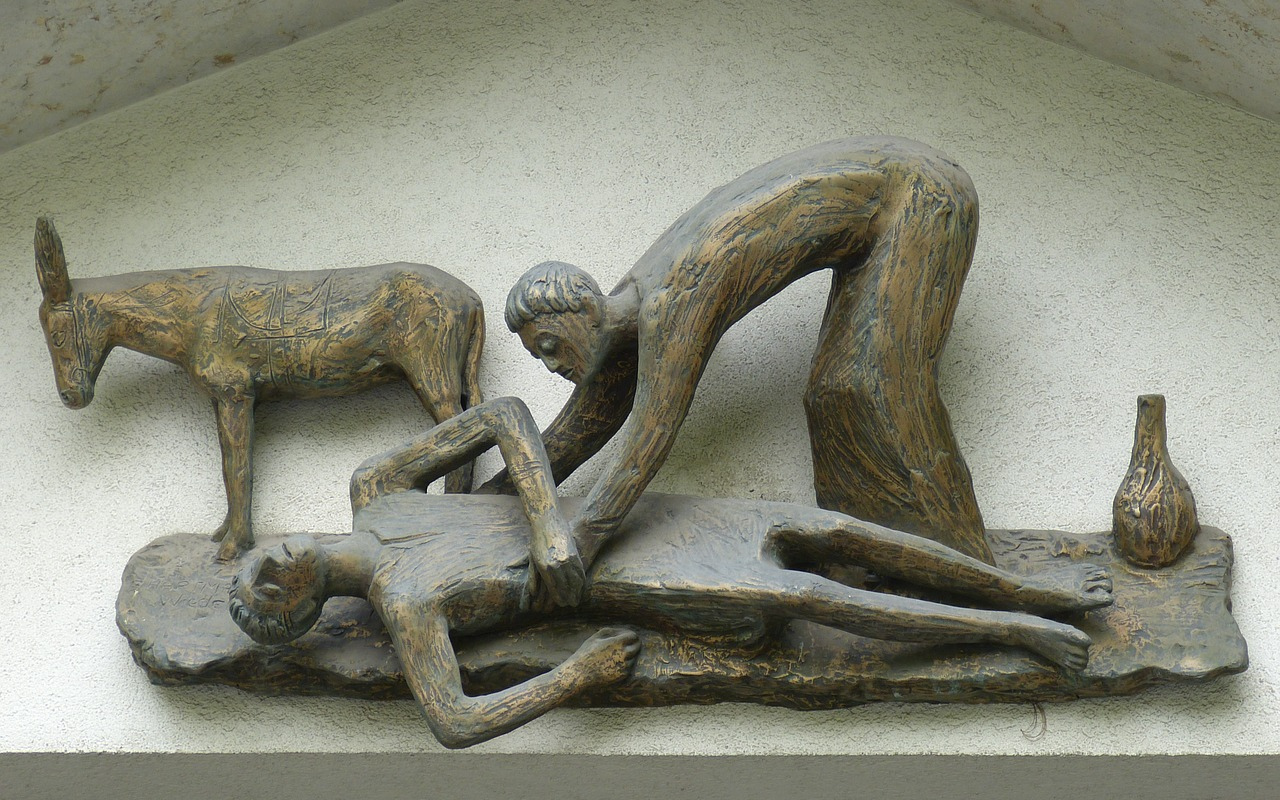In the Bible according to Luke, Jesus told a parable that gave a valuable lesson on racism and different peoples. Jesus said: “A man was going down from Jerusalem to Jericho, when he was attacked by robbers. They stripped him of his clothes, beat him and went away, leaving him half dead. A priest happened to be going down the same road, and when he saw the man, he passed by on the other side. So too, a Levite, when he came to the place and saw him, passed by on the other side. But a Samaritan, as he traveled, came where the man was; and when he saw him, he took pity on him. He went to him and bandaged his wounds, pouring on oil and wine. Then he put the man on his own donkey, brought him to an inn and took care of him.”
Therefore, a Samaritan has always been considered a good person.
FALSE.
But if a Samaritan was a bad person, he was good in this case by helping the man.
TRUE.
So, it’s possible that some people we think of as “bad,” can actually be “good?”
EXACTLY.
When the parable was told, a Samaritan historically would have been an enemy to many people and most likely considered a foe to the injured, beaten, and robbed person. Rehoboam, King Solomon’s son, in the tenth century unwisely split the kingdom into the northern kingdom of Israel and the southern kingdom of Judah; each new kingdom had its own king. Both kingdoms were ruled by evil people and became evil within. Assyrians occupied the northern kingdom, but although many of the Israelites were led off to Assyria as captives, some remained in the land and intermarried with foreigners planted there by the Assyrians. These half-Jewish, half-Gentile people then became known as the Samaritans. And they were considered evil and the enemies of Jewish and other upstanding citizens.
No one at the time of this parable would have thought the Samaritan was a good person. But the men considered as “good” were the Jew and the Levite; they crossed the road rather than provide help to the injured man. They were actually condemning the man to death because without help the man would have died.
Thus, the parable addresses bigotry and racism because the general mindset of that time classified all Samaritans as bad while all Jews and Levites were good. And yet it is the “bad” person who comes to help. It’s not that the Samaritan was considered good and therefore it made sense for him to help the injured man, it’s the fact that the people who were considered to be good crossed the road and avoided helping the man, while the bad guy stepped in, cleaned him up, took him to a safe place to stay, and planned to return the next day to pay for whatever the man needed at the inn.
The Samaritan revoked the common line of reasoning that he was considered bad, but he did the right thing. It’s not what we think today that a Good Samaritan is good and helpful, but back then he broke out of the racism and bigotry labeling him as “bad” to do something considered beyond good. The Samaritan shows us that race has no place in charity, and we should all help each other no matter our religion, our standing of equality in reference to others, or our perceived place in society. He shows us we all belong to the same race – humanity.
Her Nexx Chapter invites you to join our free Community where women from around the world are connecting with each other’s stories, exploring different experiences, and transforming ideas.
The Future of Connection for Women
- National Thesaurus Day: The Book That’s a Major Asset to Anyone Who Writes - January 18, 2025
- Lung Cancer Awareness Month: Know the Subtle Signs of This Silent Killer - December 23, 2024
- National Day of the Horse: How Riding Leads to Connection and Camaraderie - December 20, 2024
Follow us:







